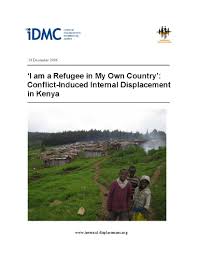The importance of land tenure to poverty eradication and sustainable development in Africa: Summary of findings
This paper draws out the key links between land tenure and poverty eradication. The author argues that in countries where land distribution remains highly inequitable, effectively designed and targeted, it could be a key component of anti-poverty strategies, but significant complementary measures, notably agrarian support services, are also required to achieve real impacts, together with investments in employment and economic diversification.





